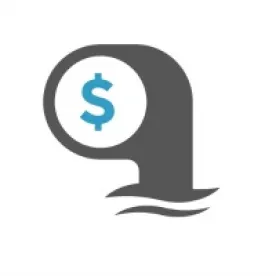On April 24, 2020, the U.S. President signed into law the Paycheck Protection Program and Health Care Enhancement Act (PPP Enhancement Act), which appropriates an additional $321 billion for the Paycheck Protection Program (PPP), as enacted under the Coronavirus Aid, Relief, and Economic Security Act (CARES Act). The $321 billion infusion under the PPP Enhancement Act replenishes the PPP after the program utilized the entire $349 billion commitment that was originally authorized under the CARES Act. Of the $321 billion, the SBA is obligated to set aside and guarantee $30 billion for (i) insured depository institutions with consolidated assets between $10 billion and $50 billion and (ii) credit unions with consolidated assets between $10 billion and $50 billion, and another $30 billion for (i) community financial institutions, (ii) insured depository institutions with consolidated assets of less than $10 billion and (iii) credit unions with consolidated assets of less than $10 billion.
Further, on April 23, 2020, the U.S. Department of Treasury (Treasury) issued an updated Frequently Asked Questions fact sheet (FAQ)[1] and on April 24, 2020, the U.S. Small Business Administration (SBA) released its Fourth Interim Final Rule[2] with respect to the PPP. The updated FAQ and Fourth Interim Final Rule is supplemental to the (i) First Interim Final Rule issued by the SBA on April 2, 2020, (ii) Second Interim Final Rule issued by the SBA on April 4, 2020, (iii) Applicable Affiliation Rules fact sheet that was issued by the Treasury on April 4, 2020 and (iv) Third Interim Finale Rule issued by the SBA on April 14, 2020.
Highlights of what we believe to be material new guidance or clarification of existing guidance in the updated FAQ and Fourth Interim Final Rule are as follows:
A. The Economic Uncertainty Certification
The updated FAQ and Fourth Interim Final Rule provides interpretative guidance with respect to the obligation of a PPP applicant to certify on its application form that “[c]urrent economic uncertainty makes this [PPP] loan request necessary to support the ongoing operations of the [a]pplicant” (the Economic Uncertainty Certification). The FAQ states that although the CARES Act suspends the ordinary requirement that applicants for SBA loans must be unable to obtain credit elsewhere (as defined in section 3(h) of the Small Business Act), PPP applicants must make the Economic Uncertainty Certification “in good faith, taking into account their current business activity and their ability to access other sources of liquidity sufficient to support their ongoing operations in a manner that is not significantly detrimental to the business.” As an example, the FAQ adds that it is “unlikely that a public company with substantial market value and access to capital markets” will be able to make the Economic Uncertainty Certification in good faith, and that such PPP applicant should be “prepared to demonstrate to SBA, upon request, the basis for its certification.”
The SBA provides a safe harbor for businesses who have already received PPP loans but determine that they are no longer able to make the Economic Uncertainty Certification in good faith in light of the updated FAQ. Such businesses that received PPP loans prior to the issuance of the updated FAQ will be deemed by the SBA to have made the Economic Uncertainty Certification in good faith if they prepay their PPP loans in full by May 7, 2020. In the Fourth Interim Final Rule the SBA elaborated that this “safe harbor is necessary and appropriate” to ensure that such businesses repay PPP loan funds that they “obtained based on a misunderstanding or misapplication of the required certification standard.”
The updated FAQ and Fourth Interim Final Rule addressing the Economic Uncertainty Certification arises amidst increasing public scrutiny of businesses that, while technically eligible for PPP loans, may be perceived as larger or better capitalized than the “small business concerns” which the PPP was established to assist.[3] On April 21, 2020, Treasury Secretary Steven Mnuchin provided additional color on the updated FAQ and Economic Uncertainty Certification, stating that “there are severe consequences for people who don’t attest properly to this certification” and further emphasizing that the intention of the PPP is to “make sure th[e] money is available to small businesses that need it . . . .”[4] At the time of this publication, there is no guidance as to how the SBA and Treasury intend to investigate or penalize businesses that are found to not have made the Economic Uncertainty Certification in good faith. However, if the SBA’s guidance in its First Interim Final Rule with respect to the general misuse of PPP funds by businesses is any indication, remedies could include a demand for repayment of loan proceeds spent and, if the Economic Uncertainty Certification was intentionally made in bad faith at the time of the PPP application, assertions of civil and, potentially (in what likely would be egregious cases), criminal liability.
B. Eligibility of Certain Businesses and Affiliation Rules For ESOP-Owned Businesses
The Fourth Interim Final Rule provides additional direction on certain businesses that are eligible for the PPP and addresses whether affiliation exists between a business and its Employee Stock Option Plan (ESOP). In particular, we underscore the following:
-
Eligibility for Hedge Funds, Private Equity Firms and Portfolio Companies of Private Equity Firms. The Fourth Interim Final Rule explicitly confirms that hedge funds and private equity firms primarily engaged “in investment or speculation” are prohibited from receiving a PPP loan. There are no modifications to the eligibility of portfolio companies of private equity firms, but the Fourth Interim Final Rule stresses that, in addition to abiding by the affiliation rules applicable to the PPP (for an analysis of the applicable affiliation rules please visit our article on the subject matter), portfolio companies should “carefully review” and take heed of the Economic Uncertainty Certification (as discussed above), including the public concerns that prompted the issuance of the updated FAQ that is discussed above, and led to the establishment of the May 7, 2020 prepayment safe harbor.
-
Eligibility of Hospitals Owned by Governmental Entities. A hospital that is otherwise eligible to receive a PPP loan as a business concern or nonprofit organization (as described in section 501(c)(3) of the Internal Revenue Code (IRC) of 1986 and exempt from taxation under section 501(a) of the IRC) will not be rendered ineligible for a PPP loan due to ownership by a state or local government if the hospital “receives less than 50% of its funding from state or local government sources, exclusive of Medicaid.” The SBA determined that this exception to the general ineligibility of government-owned entities pursuant to 13 CFR 120.110(j) is appropriate to effectuate the purposes of the CARES Act.
-
Eligibility for Businesses Engaged in Legal Gaming. The SBA streamlined and relaxed the eligibility criteria for businesses engaged in legal gambling. The Fourth Interim Final Rule states that “a business that is otherwise eligible for a PPP Loan is not rendered ineligible due to its receipt of legal gaming revenues, and 13 CFR 120.110(g) is inapplicable to PPP loans.” This revised eligibility standard for businesses engaged in legal gambling, such as casinos and hotel casinos, enables greater participation in the PPP, including, importantly, by Tribal organizations which have otherwise have largely been excluded from the benefits of PPP, if they are otherwise eligible. For an analysis of other eligibility rules applicable to businesses engaged in legal gaming, please visit our article on eligibility.
-
Eligibility of Businesses Involved in Bankruptcy Proceedings. The Fourth Interim Final Rule confirms that if a business or the owner of a business is a debtor in a bankruptcy proceeding, either at the time it submits the PPP application or at any time before the PPP loan is disbursed, the business is ineligible to receive a PPP loan. The SBA adds that if a business or the owner of a business becomes a debtor in a bankruptcy proceeding after submitting a PPP application but before the PPP loan is disbursed, it is the business’s obligation to notify the PPP lender and request cancellation of the PPP application. Failure to do so will be regarded as a use of PPP funds for unauthorized purposes.
-
Business Participation in an ESOP and Affiliation. For purposes of the PPP, a business’s participation in an ESOP (as defined in 15 U.S.C. § 632(q)(6)) does not result in an affiliation between such business and the ESOP. The SBA explained that given the nature of an ESOP, an employee generally does not buy or hold the stock directly while still employed with the business. Instead, the employee generally receives the shares in his or her personal account only upon the cessation of employment with the business, including retirement, disability, death, or termination.
Things are changing quickly and the measures and interpretations described here may change. Our analysis is necessarily limited by the time sensitivities of the current crisis as well as the absence of precedent for some of what is contained here. This analysis represents our best interpretation and recommendations based on where things currently stand.
[1] The FAQ does not carry the force and effect of law independent of the CARES Act and regulations on which it is based.
[2] The Fourth Interim Final Rule is effective without advance notice and public comment because Section 1114 of the CARES Act authorizes SBA to issue regulations to implement the PPP without regard to notice requirements.
[3] Examples of larger or better capitalized businesses may include subsidiaries or affiliates of public companies, real estate investment trusts, hedge funds and private equity firms.
[4] Remarks by President Trump and Members of the Coronavirus Task Force in Press Briefing, April 21, 2020, available at https://www.whitehouse.gov/briefings-statements/remarks-president-trump-members-coronavirus-task-force-press-briefing-3/.



 />i
/>i

